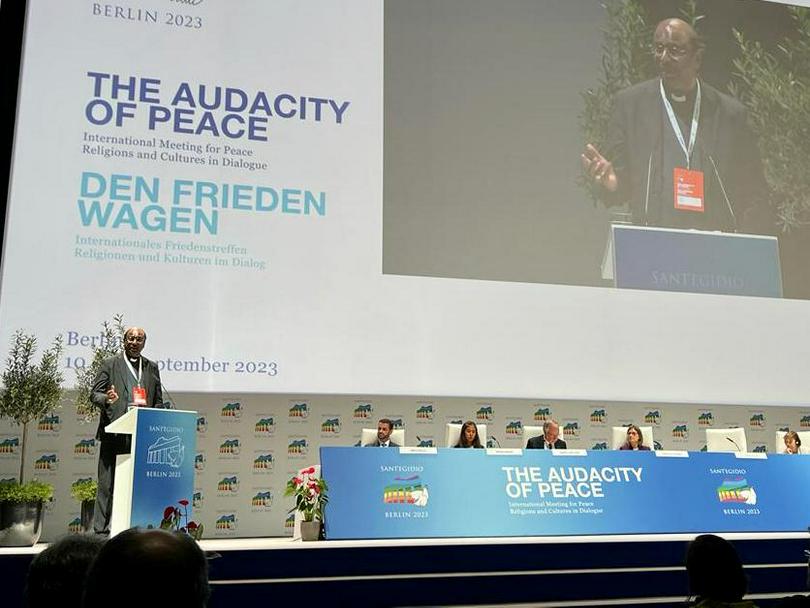Pillay noted that it takes courage to choose peace. "In today's complex world, achieving and maintaining peace is perhaps one of the most audacious acts imaginable," said Pillay. "Choosing the path of peace when it is easier, and perhaps justifiable, to choose otherwise, is indeed audacious but it is above all our calling and our mission as religious leaders."
The gathering was held in Berlin from 10-12 September under the theme "The Audacity of Peace." It is the 37th meeting in the "spirit of Assisi," after the first prayer of the world religions convened by Pope John Paul II.
The meeting was organised by the Community of Sant'Egidio, in collaboration with the Catholic and Evangelical Churches of Berlin.
Pillay spoke of today's global challenges. "These issues cannot be resolved in isolation, and they certainly cannot be overcome if we choose confrontation over collaboration," he said. "Imagine a world where nations prioritize dialogue over discord, where communities embrace diversity instead of underlining divisions, and where individuals practice compassion and solidarity over judgment and greed."
Most religious teachings promote these values at their core, Pillay noted. "Audacious peace is inspired by our faith and has two key elements: reconciliation based on justice, and unity that encompasses our differences," he said. "In a world marked by conflict, growing social unrest, injustice and violence, religious communities are called to be strong and credible advocates for justice and peace."
Interreligious literacy is a key competence for religious leaders, continued Pillay. "By actively seeking and establishing safe spaces for encounter and dialogue including those with whom we disagree, we believe we chose the right track towards audacious peace," he said. "We believe in brave conversations that challenge our perspectives and expand our horizons."
Pillay also described how the WCC is actively involved in peace initiatives in many parts of the world. "Let's be audacious, not just for ourselves but for generations to come," he concluded.
Originally from the World Council of Churches
CCD edited and reprinted with permission












